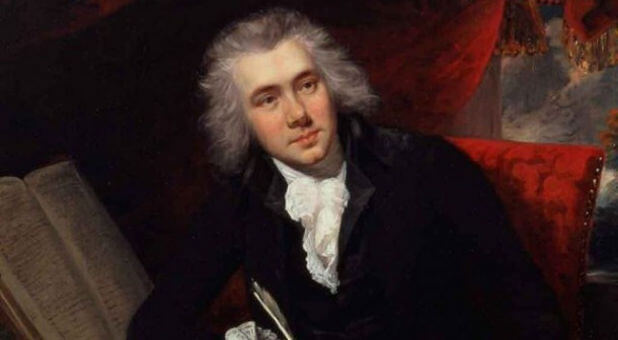Authentic Christianity
True Christians look to God to restore the image of God to their souls but know that this is not something they are able to accomplish. All their hopes of attaining this rest on total reliance on the Holy Spirit who comes to indwell them when they open their lives to Jesus Christ.
Notice the critical order here. Our change of behavior does not precede our reconciliation to God and somehow become the cause of God’s favor; it follows our coming into relationship with God and is its effect!
It is by faith in Christ only that a man or woman is made right in the sight of God; is delivered from God’s judgment and the hold of Satan; is adopted into the family of God; becomes an heir of God and a joint heir with Christ, entitled to all the privileges that belong to this high relation; is partially renewed to the image of the Creator in this life; and is totally renewed to the perfect likeness of Christ in the life to come, when we will experience God’s eternal glory and love forever.
Having entered into this relationship, the true Christian then seeks to grow in his or her spiritual life by studying the Bible in order to understand the doctrines of the faith. In studying and contemplating the life of Christ, the true Christian attempts to model his or her behavior after that of Jesus.
It is the neglect of study of the Bible and reflection on the life of Christ that is at the heart of the practical errors of the majority of confessing Christians. Mere morality is dwarfish compared to the results of true faith. Morality as an answer to the pitiful state of the human condition reveals a total misunderstanding of the enormous problem of the fallen human condition.
This is a problem so massive that God gave His Son to die on the cross to solve it. When we think we can atone for our sin by becoming good, it is like a slap in the face of Christ. The cold sense of obligation and the grudging attitude of any act of service that accompanies cultural Christianity is completely inconsistent with the fact that a true Christian “is the temple of the Holy Ghost” (1 Cor. 6:19, KJV) and that our response to Christ is to demonstrate that we have been “delivered…from the power of darkness, and…translated…into the kingdom of his dear Son” (Col. 1:13).
All our behavior, as those who have entered into this union with Christ, is to flow from these biblical truths. These truths are to motivate us to serve God with joy, thankfulness and love. We are to be a people who live with the experience of eternal gratitude.
If we are going to walk worthy of Christ, we have to practice one central discipline. As the writer of Hebrews exhorts, we are to fix our eyes on Jesus. We are to run our race looking unto Jesus as our motivation.
This is the key. If we do this one thing, we will be unable to treat our faith in the superficial way most cultural Christians do in our time.
In looking unto Jesus, we:
- realize how logical it is to make an unconditional surrender of our total beings to the will and service of God
- see how hateful sin is to the perfect holiness of God
- grow in the love of God and receive the motivation to treat our fellow man with compassion
- become more humble
- develop the attitude that is required to be a true servant of Christ on Earth
- learn to live by faith.
To the men and women who possess authentic faith in Jesus Christ, the core truths of the gospel are the center of gravity toward which all of life is in motion. They are the origin of all that is excellent and lovely and the source of light and life.
The human mind cannot reason to these conclusions. But when you read the Gospels, your eyes are unveiled and you can see “the light of the knowledge of the glory of God in the face of Jesus Christ” (2 Cor. 4:6). And as we behold His glory, we are transformed so that we can reflect His glory in all we do and in all we are (see 2 Cor. 3:18).
William Wilberforce (1759-1833) has been described as “the greatest reformer in history.” He was born in Hull, England, on Aug. 24, 1759, and soon after graduating from St. John’s College, Cambridge University in 1780, he secured a seat in Parliament for his birthplace. By 1787, Wilberforce had taken up the charge for which we remember him today: the fight to abolish the British slave trade. Wilberforce retired from political life in February 1825, having served his nation for nearly 45 years. Yet his efforts to secure the emancipation of slaves throughout Britain’s colonies continued until his death in 1833.














































